On this day on 7th October
On this day in 1763 George III of Great Britain issues Proclamation of 1763, closing lands in North America north and west of Alleghenies to white settlement
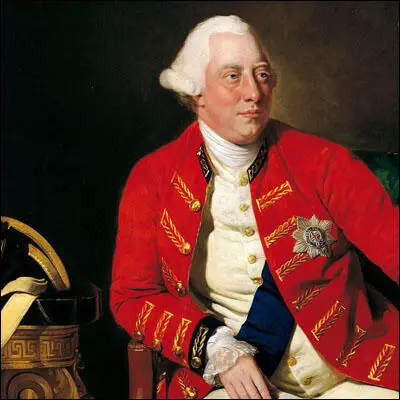
On this day in 1886 Spain abolishes slavery in Cuba. By 1898 the Cubans were on the verge of defeating the Spanish when troops from the United States arrived to quell the revolt. The United States had originally tried to buy the island from Spain in 1853 for $130 million. After putting down the Cuban revolt, the United States was in a position to force Cuba to sell their sugar and tobacco to them instead of to Spain. As the Spanish had done previously, the United States forced the Cubans to sell raw materials for low prices. They also made sure that Cuba bought their manufactured goods, and by 1914 an estimated 74 per cent of all imports came from the United States. Much of Cuban industry was now owned by United States companies including the railways, telephones and tobacco plantations, as was two-thirds of all arable land. The United States also took control of Guantanamo Bay. As well as providing an important base for the US Navy, Guantanamo also had two airstrips and a Marine Garrison.
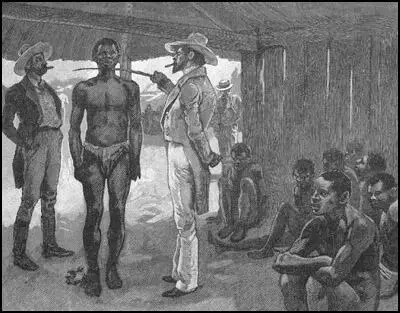
On this day in 1904 Isabella Bird died in Edinburgh. An explorer, writer, photographer and naturalist she was the author of An Englishwoman in America (1856), The Hawaiian Archipelago (1873), A Lady's Life in the Rocky Mountains (1879) Unbeaten Tracks in Japan (1880), The Golden Chersonese and the Way Thither (1883), Journeys in Persia and Kurdistan (1891), Among the Tibetans (1894), Korea and her Neighbours (1898), Yangtze Valley and Beyond (1899), Chinese Pictures (1900) and Notes on Morocco (1901).
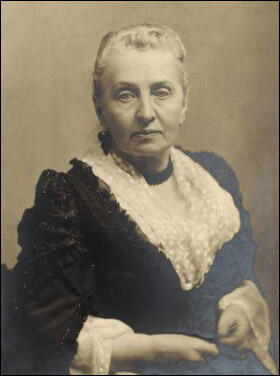
On this day in 1915 English nurse Edith Cavell sentenced to death along with 34 others by German court martial for running underground network to free Allied soldiers. Cavell was kept in solitary confinement for nine weeks, during which time she was tricked by the Germans into making a confession. Edith Cavell was tried by court-martial, and along with her Belgian accomplice, Philippe Baucq, was found guilty and sentenced to death. Cavell's execution by firing-squad on 12th October, 1915, received world-wide press coverage.
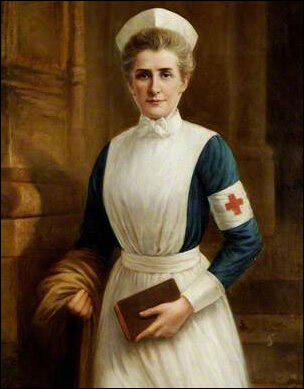
On this day in 1929 Ramsay MacDonald is first British Prime Minister to address US Congress.
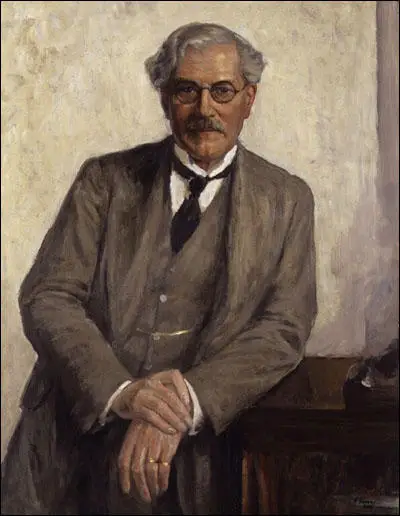
On this day in 1935 Heinrich Himmler, Rudolf Hess and Reinhard Heydrich inspect the concentration camp at Dachau.
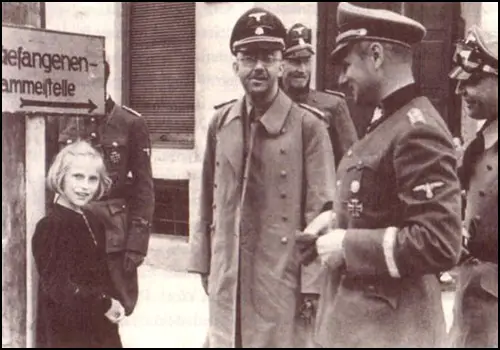
On this day in 1938 Nazi Germany requires all Jewish passports or identity cards to be stamped with letter "J". The marking of their passports alienated the Jewish community and constituted an important part of the campaign of persecution. It led to Kristallnacht, a state-sponsored campaign of violence against the German Jewish population just one month later, and ended in the systematic murder of six million Jewish men, women and children.
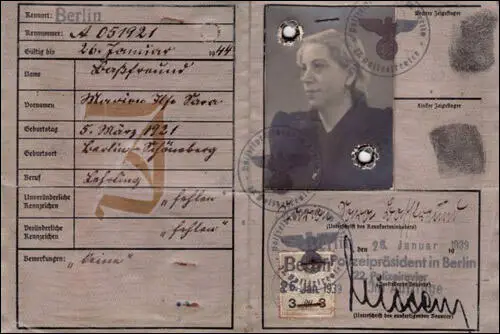
a red J for Jude and the added middle name of "Sara."
On this day in 1940 during the Blitz seven people were killed and thirty-three seriously injured at Trafalgar Square station when an explosion caused the concrete and steel casing over an escalator to collapse.

On this day in 1943 novelist Radclyffe Hall died of bowel cancer at her flat in Pimlico.
Marguerite Antonia Radclyffe-Hall, the second child of Radclyffe Radclyffe-Hall (1846–1898) and Mary Jane Sager (1854–1945) was born on 12th August 1880 at West Cliff, Bournemouth. The death of her elder sister in infancy left her as an only child.
Her parents divorced in 1883. According to her biographer, Michael Baker: "She rarely saw her father thereafter and was unloved by her volatile mother, who remarried in 1890. Her mother's third husband was Alberto Visetti, a professor of singing at the Royal College of Music. Despite showing a precocious musical talent, she received scant encouragement from her stepfather (though he did, it seems, make sexual advances towards her). Her education was fitful and she remained a chronic bad speller all her life."
At the age of twenty-one she inherited a large sum of money that left in trust by her grandfather Charles Radclyffe-Hall. A lesbian, she lived with the singer Mabel Veronica Batten, who was twenty-five years her senior, until her death in 1916. Soon afterwards she began a relationship with Una Elena Troubridge (1887-1963), a talented sculptor. She was married to Admiral Ernest Troubridge and Radclyffe Hall sued him for libel after he described her as "a grossly immoral woman".
According to her biographer: "Believing herself a man trapped in a woman's body, she liked to be called John, assumed a male pseudonym (her father's name, significantly), and cultivated a strikingly masculine appearance, sporting cropped hair, monocles, bow-ties, smoking jackets, and pipes. A woman's best place, she proclaimed, was in the home."
Although she had enough money to live in leisure, Radclyffe Hall decided to take up writing and published several novels, including The Forge (1924), The Unlit Lamp (1924), A Saturday Life (1925) and several volumes of poetry. Her fourth novel, Adam's Breed (1926) was a best-seller and won two prestigious literary prizes, the Femina Vie Heureuse and James Tait Black.
In 1928 Radclyffe Hall published the novel, The Well of Loneliness, about the subject of lesbianism. The publisher, Jonathan Cape, argued on the bookjacket that: "In England hitherto the subject has not been treated frankly outside the regions of scientific text-books, but that its social consequences qualify a broader and more general treatment is likely to be the opinion of thoughtful and cultured people."
Havelock Ellis, the author of argued: "I have read The Well of Loneliness with great interest because - apart from its fine qualities as a novel - it possesses a notable psychological and sociological significance. So far as I know, it is the first English novel which presents, in a completely faithful and uncompromising form, one particular aspect of sexual life as it exists among us today. The relation of certain people - who, while different from their fellow human beings, are sometimes of the highest character and the finest aptitudes - to the often hostile society in which they move presents difficult and still unsolved problems. The poignant situations which thus arise are here set forth so vividly, and yet with such complete absence of offence, that we must place Radclyffe Hall's book on a high level of distinction."
There was a campaign by the press to get the book banned. The Sunday Express argued: "In order to prevent the contamination and corruption of English fiction it is the duty of the critic to make it impossible for any other novelist to repeat this outrage. I say deliberately that this novel is not fit to be sold by any bookseller or to be borrowed from any library."
Behind the scenes the Home Office put pressure of Jonathan Cape to withdraw the book. One official described the book as "inherently obscene… it supports a depraved practice and is gravely detrimental to the public interest". The chief magistrate, Sir Chartres Biron, ordered that all copies be destroyed, and that literary merit presented no grounds for defence. The publisher agreed to withdraw the novel and proofs intended for a publisher in France were seized in October 1928.
Several writers, including, Arnold Bennett, Vera Brittain, John Buchan, T.S. Eliot, E.M. Forster, Victor Gollancz, George Bernard Shaw, Lytton Strachey, Leonard Woolf, Virginia Woolf, Julian Huxley, Violet Markham, T.S. Eliot and Harley Granville-Barker, signed a letter of protest about the banning of the The Well of Loneliness to The Daily Chronicle.
Maude Royden, a woman preacher, gave passionate support for the book. A sermon on the subject was published in The Guildhall Monthly in April 1929. "I feel bound to say that I find it difficult to understand why an official who permits the publication of books so filthy that it soils the mind to read them, and the production of plays in which everything that is connected with sex is degraded, in which marriage and adultery alike are treated as though they were rather a nasty joke, should have fastened on this particular book as being unfit for us to read. I do not desire that those other books or plays should be suppressed; I have no faith at all in that way of dealing with evil. It is better to concentrate our efforts on trying to be interested in something that is good than to take a short cut to virtue by repressing what is evil."
Radclyffe Hall wrote to Maude Royden explaining her motivation for writing the novel: "May I take this opportunity of telling you how much your support of The Well of Loneliness has meant to its author during the past months of government persecution. I wrote the book in order to help a very much misunderstood and therefore unfortunate section of society, and to feel that a leader of thought like yourself had extended to me your understanding was, and still is, a source of strength and encouragement."
Radclyffe Hall followed The Well of Loneliness with The Master of the House (1932), Miss Ogilvie Finds Herself (1934) and The Sixth Beatitude (1936). Michael Baker has argued: "All these works, traditionalist in style but exhibiting an impressive psychological grasp, reflect in varying degrees her deep sense of being a social outsider and, increasingly, demonstrate her preoccupation with a search for spiritual self-knowledge through suffering and denial."
Although she continued to live with Una Elena Troubridge, Radclyffe Hall fell in love with a Russian nurse, Eugenie Souline in 1934. Despite the initial protests of Troubridge, the three women lived together in Florence. A staunch Roman Catholic she held right-wing opinions and during the late 1930s held neo-fascist and anti-semitic views.
On the outbreak of the Second World War, Radclyffe Hall, Ttoubridge and Souline left Italy and settled in Devon. Radclyffe Hall developed bowel cancer and died on 7th October 1943 at her flat in Pimlico. She was buried in Highgate Cemetery. Just before her death Hall changed her will, leaving everything to Troubridge, including the copyrights to her works. In her new will she asked Troubridge to "make such provision for our friend Eugenie Souline as in her absolute discretion she may consider right". However, Troubridge only provided Souline with only a small allowance.
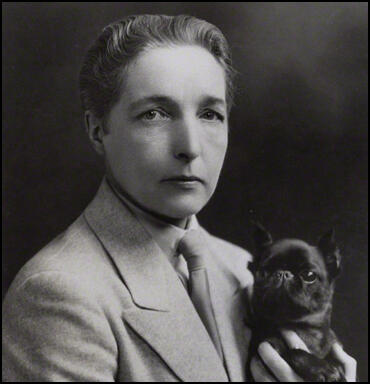
On this day in 1949 Wilhelm Pieck is elected president of the German Democratic Republic.
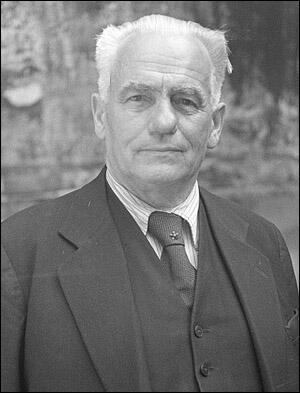
On this day in 1950 Walter Bedell Smith becomes Director General of the Central Intelligence Agency.
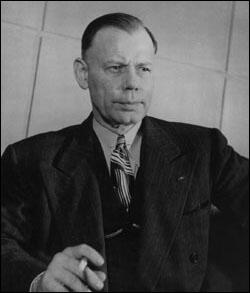
On this day in 1950 Walter Bedell Smith becomes Director General of the Central Intelligence Agency.
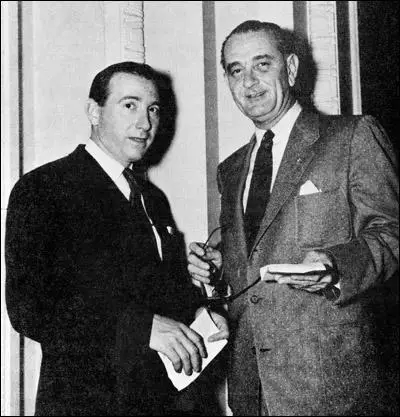
On this day in 1963 Bobby Baker resigns as Senate Democratic secretary. Although officially his only income was that of Secretary to the Majority in the Senate, he was clearly a very rich man. The journalist, G. R. Schreiber, asked: "How do you build a two million dollar fortune in eight years on a salary of less than $20,000? The answer is that Bobby found it easy because so many people were ready to help him."
Baker was investigated by Attorney General Robert Kennedy. He later recalled: The newspapers had a number of articles, The Washington Post particularly. I had always heard stories about Bobby Baker, about all his money and free use of money.... Our first involvement in it came, I suppose, in a conversation I had with Ben Bradlee... who had some information. I can't remember exactly what it was, but they printed it in Newsweek. He asked me if we would look into it, and I said we would look into it."
Robert Kennedy discovered Baker had links to Clint Murchison and several Mafia bosses. Evidence also emerged that Lyndon B. Johnson was also involved in political corruption. This included the award of a $7 billion contract for a fighter plane, the F-111, to General Dynamics, a company based in Texas. On 7th October, 1963, Bobby Baker was forced to resign his post. Soon afterwards, Fred Korth, the Navy Secretary, was also forced to resign because of the F-111 contract.
Despite the efforts of his lawyer, Edward Bennett Williams, in 1967 Baker was found guilty of seven counts of theft, fraud and income tax evasions. This included accepting large sums in "campaign donations" intended to buy influence with various senators, but had kept the money for himself. He was sentenced to three years in federal prison but served only sixteen months. Baker commented: "Russia wouldn’t have treated me the way this country has... But I have no great resentment. No, this is a great country. It’s done a lot for me. I like to think I have done a lot for it."

